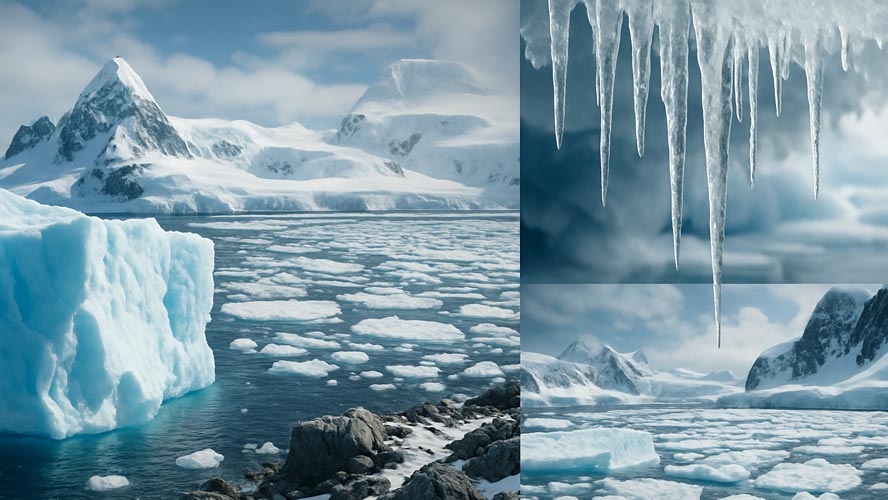NEW Climate Hope in Antarctica’s Surprise Ice Gain

An unexpected surge in Antarctic ice has given new hope to Australians worried about climate change, with one Gold Coast woman saying it helped her find peace after years of fearing disaster.
Karen Mitchell, 52, said she had struggled with climate anxiety for years after seeing constant warnings about environmental collapse and climate catastrophe. Like many others, she believed the global warming emergency would spark massive sea level rises, unstoppable wildfires, and a planetary emergency that would change life forever.
“When you hear the words climate panic, climate doom, and climate disaster every single day, it starts to shape the way you see the world,” Ms Mitchell said.
“It got to the point where I honestly thought we were headed for total collapse.”
The latest data from NASA’s GRACE and GRACE-FO satellites, showing Antarctica gained 108 billion tons of ice mass in just one year, came as a major shock. Scientists expected continued losses but instead found the continent’s ice dynamics had shifted unexpectedly, offering a rare positive sign amid constant climate change fear.
Ms Mitchell said the news left her relieved and far more balanced in how she viewed climate issues. “For me, the Antarctic ice gain has dialled back the noise. It has helped me breathe again,” she said.
Like many Australians, she supported cleaner technology and smarter environmental management but felt the heavy push of climate alarmism had caused unnecessary fear.
“There’s a difference between looking after the planet and living every day under a blanket of eco-anxiety,” she said.
Ms Mitchell said the ice gain was a reminder that Earth’s systems are complex and sometimes surprise even the experts. “This doesn’t mean climate change isn’t real,” she said. “But it shows the planet isn’t a fragile toy that’s just going to snap.”
She also pointed to an important historical example often missing from today’s discussions about sea level rise. “Look at the Dutch,” she said. “They’ve been holding back the sea for over 400 years. It proves that smart engineering and resilience can manage these problems without all the panic.”
Ocean levels rising happens so slowly – about 20mm per decade – there’s plenty of time to manage this issue.
Ms Mitchell believes that events like the Antarctic ice gain should encourage a more rational and hopeful public conversation. “Not every shift has to be a catastrophe,” she said. “Sometimes nature does something that reminds us it’s not all doom and gloom.”
While experts caution that one year of ice growth doesn’t erase broader warming trends, Ms Mitchell said the data should still be taken seriously. “If we’re going to trust science when it’s bad news, we’ve got to trust it when it’s good news too,” she said.
The Antarctic result has not received the same media coverage as record heatwaves or major storms. Critics argue positive climate stories are often buried because they don’t fit the established narrative of constant emergency.
Ms Mitchell said she hoped more Australians would take the time to look at the full picture, instead of only hearing about climate tipping points and climate activism fear. “It’s okay to care about the environment without being scared out of your mind,” she said. “We need solutions, not hysteria.”
As Antarctica continues to defy predictions, Australians like Ms Mitchell are finding renewed hope that the planet – and its people – are more capable than many realise.


